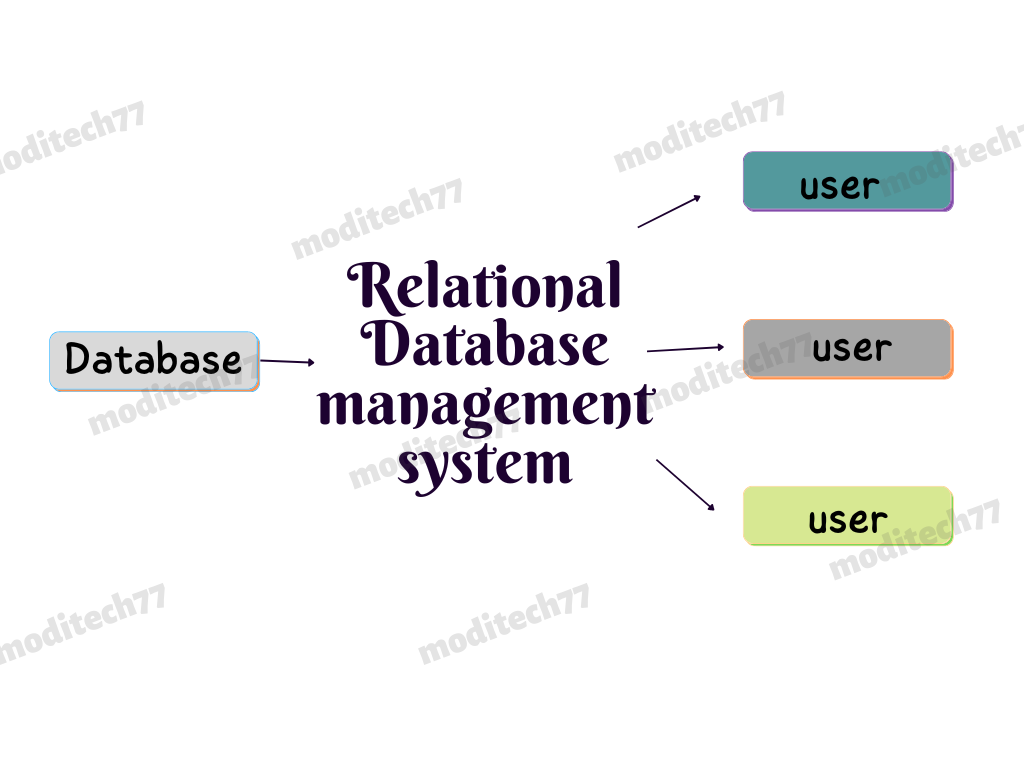RDBMS Full Form

➺ RDBMS stands for Relational database management system. Edgar Codd first introduced relational database systems in 1970.
➺ It is an application program that manages a relational database.
➺ It is software that is used to create, store, and retrieve user data in an easy and efficient way with security measures in relational databases.
➺ Its is a software used to store, and retrieve data in tabular form and organize data in rows and columns. It contains a number of programs that manages the whole relational database.
➺ An RDBMS is the most commonly used and popular database. It uses SQL Queries in order to access the data in the database.
➺ All modern databases are based on RDBMS such as SQL, MySQL, Mircosoft Access, Oracle, IBM DB2, SQL Server, etc.
➺ In RDBMS, data in the database are stored in form table (rows and columns) and Table is also known as Relations.
Example of RDBMS
◆ Some examples of RDBMS are given below :
➺ CUBRID
➺ Oracle Database XE
➺ MySQL
➺ SQLite (for mobiles)
➺ Sequel Pro
➺ MariaDB
➺ PostgreSQL
➺ SQL Server Express
➺ Db2 Express-C
➺ Firebird
Advantages of RDBMS
➺ In RDBMS, the data is represented in tabular form (rows and columns). Thus it's easy to understand.
➺ Easy access to desired data or information using Structured Query Language (SQL) queries.
➺ RDBMS supports Multi-user facility.
➺ RDBMS handles a large amount of data.
➺ RDBMS provides an accuracy of data, there is no duplication of data in a table.
➺ It also provides high security to protect databases. So no access to the unauthorized user to the database.
➺ Users can easily exchange information from one database to another database.
➺ User can control data entry with help of data validation.
Disadvantages of RDBMS
➺ Relational database system is very costly in setting up and maintaining a database.
➺ RDBMS requires a large amount of physical storage. Each of the operations depends on separate physical storage.
➺ Big industry uses multiple databases containing multiple tables. when data is moved from one system to another. Thus there may be a risk of loss of data in the database.
You might like this :-
○ ACID Properties in DBMS
○Data Model in DBMS
○Codd's 12 Rules
○DBMS vs RDBMS